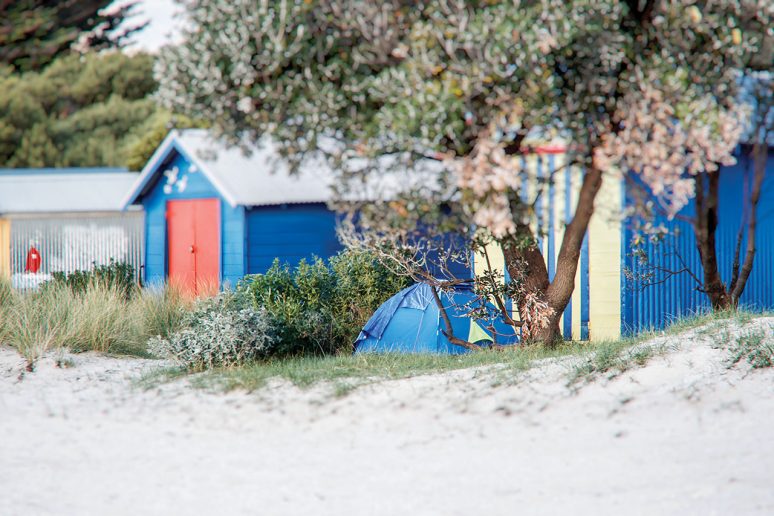POLITICIANS can expect to face increasing pressure to provide housing for the homeless, especially women, on the Mornington Peninsula.
A report on the “homelessness crisis” by community group Peninsula Voice showed that more than 1000 people couch surf, sleep in their car or sleep rough every night on the peninsula. Increasingly, these people are women and children fleeing family violence. Emergency accommodation is virtually non-existent and women on the foreshore have experienced family violence and sexual assault before and while on the foreshore.
These statistics and first hand experiences of the crisis were given to Housing, Water and Equality Minister Harriet Shingh at a meeting of the Southern Women’s Action Network (SWAN) on Sunday 19 May at Mount Martha House.
Pressure on politicians to ease the plight of the homeless on the peninsula will increase in the lead up to the October council elections and the next federal election, due before September next year.
“Housing for women, especially those over 50 years of age, is a critical issue that has reached a crisis point on the peninsula,” SWAN facilitator Diane McDonald said. “This is a beautiful place to live and many of us feel so fortunate to call the peninsula our home but it’s a tragedy when our fellow community members don’t have a place to live safely. Surely we must all do something, and quickly?”
McDonald said women would not “stand by and watch more women end up camping on the foreshore or sleeping in their cars. Their lives and that of their children are at serious risk of violence”. “We believe that women’s homelessness on the peninsula has been overlooked by all levels of government and we will not rest until our fellow community members receive better care and a safe place to live,” she said. “It’s imperative that all levels of government work together to start building affordable and supported housing and properly fund local support services on the peninsula.”
Shingh told the meeting about state government policies and money available for housing projects. Shingh is one of five Upper House MPs for Eastern Victoria, which includes the peninsula’s three Lower House seats of Hastings, Mornington and Nepean. Along with Tom McIntosh, Shingh is one of two Labor MPs representing Eastern Victoria. The other MPs are Renee Heath (Liberal), Melina Bath (The Nationals) and Jeff Bourman (Shooters, Fishers and Farmers Party Victoria).
The audience at Mount Martha House included housing case workers and speakers who told Shingh about the peninsula’s housing crisis and the lack of local community services, which is within her own electorate. The meeting was told that anyone under the age of 55 on the public housing priority register faced an “indefinite” wait of 15 to 20 years.
Shingh was told that 3000 homes were needed to meet demand on the peninsula, with 2934 people already in “desperate need”. Shingh said she would investigate as she was alarmed to hear of such lengthy waits. One woman spoke about having lived in a car for years while waiting for a suitable house and the deterioration in her health and wellbeing as she was unable to access local services.
SWAN is lobbying for an “urgent increase” in money for public and social housing for women on the peninsula and wants all levels of government to provide more recurrent funding for “our local overstretched community support centres and incentivise the location of new service providers to the peninsula to provide more and specialist services”.
“The primary issue with housing on the peninsula is lack of stock,” SWAN member and former community development worker and tenant participation coordinator at the Department of Health and Human Services, Susan Blackburn, said. “We need significantly more housing at all levels – crisis, transitional and long term – and an increase in support services. “We have some excellent services on the peninsula, but there are not enough, they are overworked and underfunded.”
Blackburn said she “incredible benefits” for people and families who obtained safe, secure and affordable housing.
“Everyone benefits,” she said. “Our position should be a fence at the top of the cliff, not an ambulance at the bottom.”
Blackburn said providing housing would save money “in real terms and for the long term”.
In 2017 the cost of homelessness was put at $25,615 a person each year by SGS Economics and Planning when health, crime and other factors were included. The 7600 Victorians living on the streets represented an annual cost of $194 million and, despite projected one-off costs of $60,000 to create each emergency accommodation bed, economists estimated $10,800 a year would be saved over 20 years.
First published in the Mornington News – 4th June 2024




